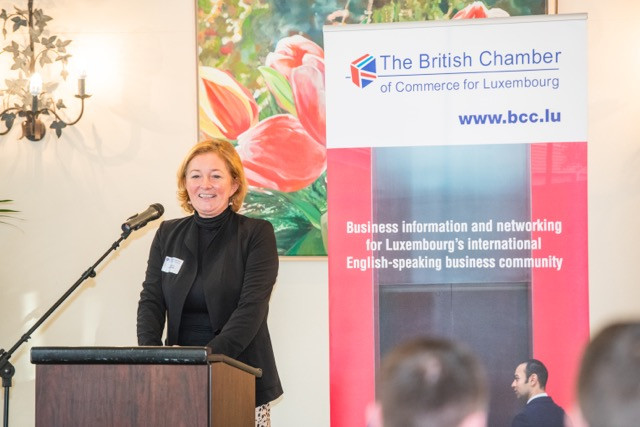The minister, who also holds the consumer protection and minister delegate of social security portfolios, told attendees at the Hotel Parc Belair on Thursday that, as Luxembourg is “a small country, we have to be smart. We don’t have gold, huge fisheries, we don’t have natural resources…we really need to focus on a service economy."
“We have to stay attractive for people coming over here to work,” she added.
Lenert described her journey into Luxembourg’s political sphere, having started her career as a judge at age 28, a role she carried out for 13 years. She was proud of what had been accomplished in her former cabinet role as minister for development cooperation and humanitarian affairs, which has since been passed onto new government member Franz Fayot.
“Luxembourg has a leading position in cooperation policy,” Lenert said, citing the fact that the country has devoted 1% of its gross national income to official development assistance. “But still we have to invest smart because it’s public money from citizens.”
Luxembourg has a general cooperation agreement with seven partner countries: Burkina Faso, Cape Verde, Laos, Mali, Nicaragua, Niger and Senegal. Among the main pillars of the policy has been health, future-oriented education and training and helping vulnerable communities--for example, those who have seen wartime violence--through a “360-approach”, as well as intelligent leap-frogging and innovation.
“What I found so fascinating about the development policy,” Lenert recalled, is that it is "key to bring in new technologies, think about what we can do once we have connectivity in a country, what does it allow to ease up in terms of health services, digital education, digital health.”
In fact, in her new role, Lenert wants to foster the research and innovation side and evolution that would allow Luxembourg to become a leader in health. Citing Bertelsmann Stiftung’s digital health index, which provides a report card on 17 countries, the minister said she was “disappointed” to discover the grand duchy was not covered, and one of her priorities will be not only to get those benchmarks established for the country but also to claim first place in the rankings.
Business as usual
In his speech, BCC chair Daniel Eischen also addressed the Brexit topic, reminding guests that for the chamber, which functions independently, it would be “business as usual”.
Nevertheless, as there are “11 months ahead of us” until details are worked out, Eischen encouraged members to reach out as they face or anticipate challenges ahead, adding: “We have to rethink what we do, we have to rethink the way we interact with our members because it’s clearly a different time.”
